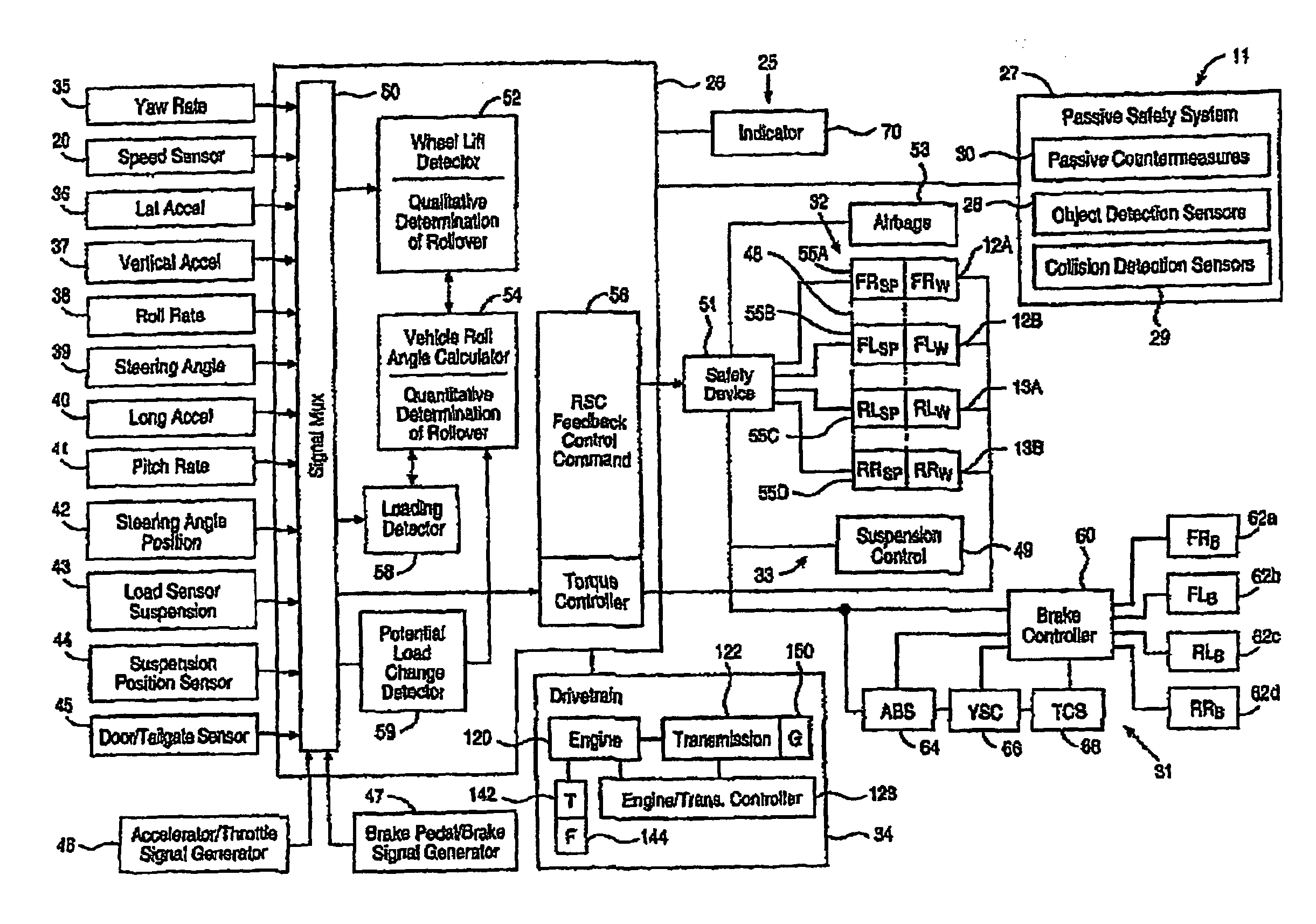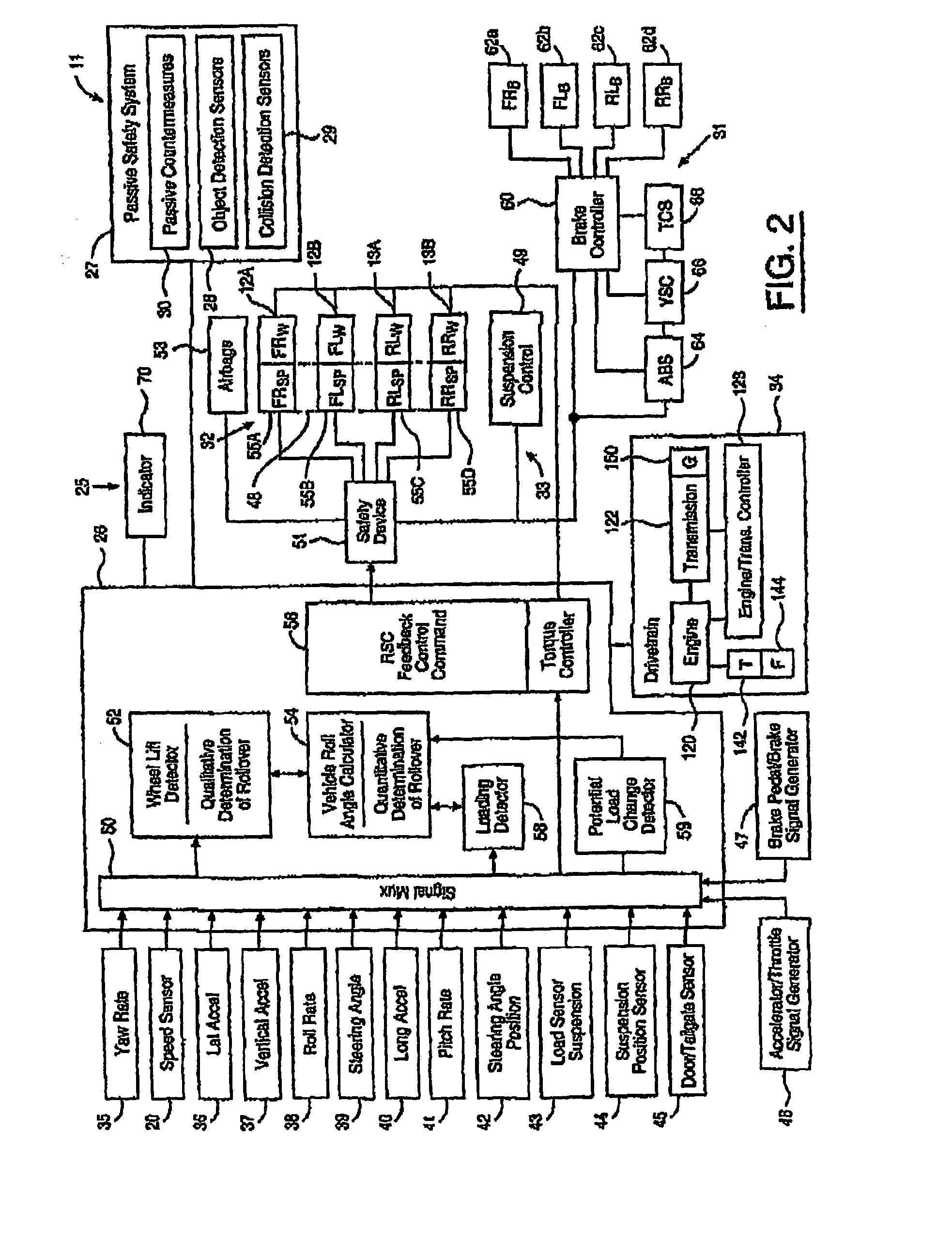Enhanced yaw stability control to mitigate a vehicle's abnormal yaw motion due to a disturbance force applied to vehicle body
a technology of stability control and enhanced yaw, which is applied in the direction of braking system, process and machine control, instruments, etc., can solve the problems of large load transfer to the front, vehicle steering less than, so as to reduce the abnormal yaw motion of vehicles, enhance the operation of traditional stability control tasks, and reduce the effect of yaw motion
- Summary
- Abstract
- Description
- Claims
- Application Information
AI Technical Summary
Benefits of technology
Problems solved by technology
Method used
Image
Examples
Embodiment Construction
[0029]In this invention, we consider the aforementioned BFD, which leads a vehicle to a larger-than normal yaw motion (e.g., with yaw rate magnitude larger than 100 degrees per second) that is well beyond the dynamic range of yaw controlled by prior yaw stability control systems (e.g., with yaw rate magnitude below 75 degrees per second). Abnormal yaw motion due to a BFD is usually larger than the yaw motion generated by the tire force disturbance of tire force differentials due to road surface condition variations that can be effectively controlled by the traditional stability controls. Although prior yaw stability control systems provide stabilization during normal operating conditions, it can be performance limited, ineffective, and / or can become inactive during an event when the vehicle receives a controllable BFD. For example, during a controllable BFD application, some sensors of current stability control systems can become saturated or damaged or inaccurate, which can cause c...
PUM
 Login to View More
Login to View More Abstract
Description
Claims
Application Information
 Login to View More
Login to View More - R&D
- Intellectual Property
- Life Sciences
- Materials
- Tech Scout
- Unparalleled Data Quality
- Higher Quality Content
- 60% Fewer Hallucinations
Browse by: Latest US Patents, China's latest patents, Technical Efficacy Thesaurus, Application Domain, Technology Topic, Popular Technical Reports.
© 2025 PatSnap. All rights reserved.Legal|Privacy policy|Modern Slavery Act Transparency Statement|Sitemap|About US| Contact US: help@patsnap.com



